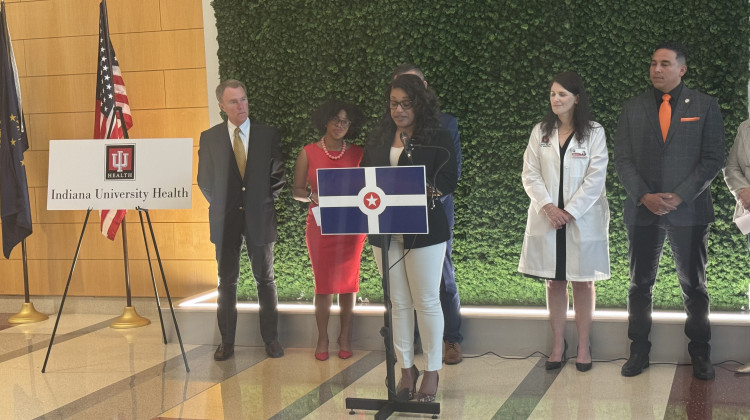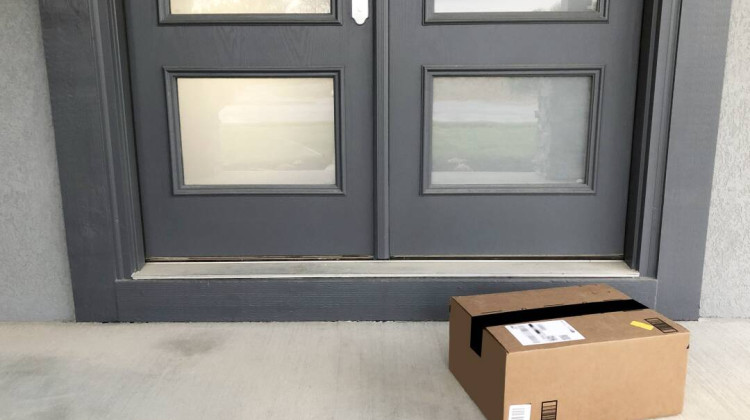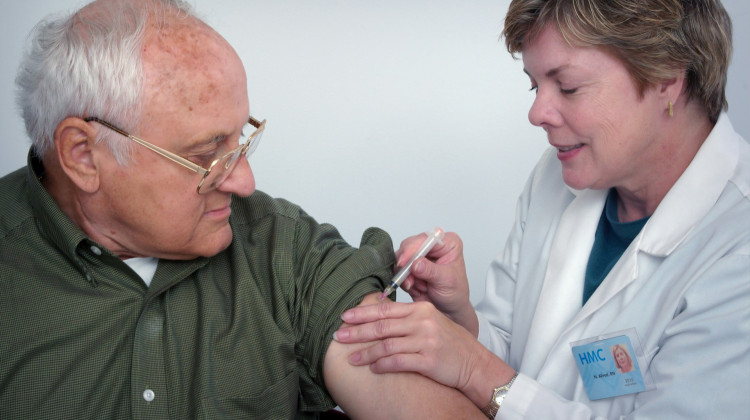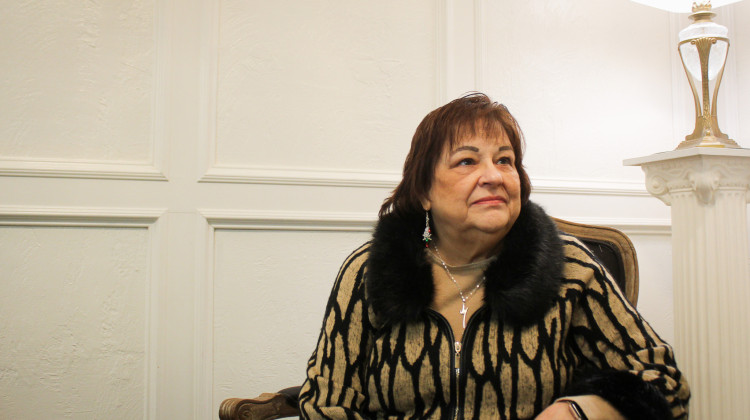
Kyndra Simmons is a nationally recognized violence prevention expert with The Health Alliance for Violence Intervention.
Elizabeth Gabriel / Side Effects Public MediaPeople who are involved in gun violence are at a significantly high risk of hospital readmission for violent injuries –– many of which are more severe than the initial incident. Now, Indianapolis has announced the state’s first hospital-linked violence prevention program.
The initiative is a collaboration between the local nonprofit Indy Peace and Indiana University Health Methodist Hospital. The team works with victims and people who have committed gun violence to connect them with long-term wraparound services, including food, housing and mental health support.
The goal is to interrupt the cycle of violence and retaliation in the community.
Firearm violence is the leading cause of death among children, and the United States Surgeon General Dr. Vivek Murthy recently declared firearm violence as a public health crisis.
The Indiana program began in April. Indianapolis Mayor Joe Hogsett said it’s already working.
“We are reaching more people than ever,” Hogsett said. “We are connecting them to the resources they need to live peaceful and fulfilling lives. I have no doubt that these results will lead to a better, safer Indianapolis for all who call it home.”
The Hospital-Linked Violence Intervention Program operates with a therapist, three nurse navigators and three life coaches, with the goal of expanding to at least 10 to 15 life coaches. They reach out to gun violence victims while they are still in the hospital, as well as community members who have been anonymously recommended for the program through an online portal. Staff also host pop-up barbecues in neighborhoods that they consider at high-risk for violence, like Martindale-Brightwood and Haughville.
Kyndra Simmons, a nationally recognized violence prevention expert with The Health Alliance for Violence Intervention, said prevention professionals often come from the same communities they serve and may have experienced violence.
That’s the case for life coach Daniel Mallory who has been a gun victim of an active crime, and a shooter. He said the job has its highs and lows, but he loves it because his lived experience allows him to connect with people.
“A lot of times, these individuals [are] waking up bedside and somebody’s standing next to you trying to talk to you — they don’t trust you, they don’t know you,” Mallory said. “So it’s up to an individual who is relevant and can maybe crack the ice. Just gain a rapport with you and gain some trust with you to be able to hear your story.”
Mallory said he sees clients in-person 2 to 5 times a week and communicates with most of them everyday over the phone or email.
Since its launch in April, the program has served nearly 30 patients and experienced a 123% visit-to-referral ratio, according to a press release. Six patients have enrolled in the Indy Peace Fellowship — an 18-month life-coaching program.
Karma Johnson, a lead outreach worker, researches high-risk individuals by scanning shooting reviews and social media to better understand an individual before reaching out to them. Then she sets them up with a life coach if they’re interested in the program.
Johnson does this work in honor of her 20-year-old son and his girlfriend who died in 2016 due to gun violence.
“If the person is really ready to change their ways and they need some support, I think they should try the program,” Johnson said. “I feel like if this program was in existence when my son was alive, he could possibly still be here.”
The Hospital-Linked Violence Intervention Program is funded through a $249,381 Elevation Grant, which is federal funding distributed through the City of Indianapolis.
Other hospital violence prevention initiatives exist in Indianapolis, but they may rely on hospital employees or hire additional staff to run the program. That can lead to high program costs just to cover salaries. But the partnership with Indy Peace aims to be more sustainable because the Hospital-Linked Violence Intervention Program doesn’t have to pay for additional staff since Indy Peace is funded through the City-County Council budget.
That means more funding for supports like therapists, professional development and program supplies.
Contact WFYI’s health reporter Elizabeth Gabriel at egabriel@wfyi.org
Side Effects Public Media is a health reporting collaboration based at WFYI in Indianapolis. We partner with NPR stations across the Midwest and surrounding areas — including KBIA and KCUR in Missouri, Iowa Public Radio, Ideastream in Ohio and WFPL in Kentucky.
 DONATE
DONATE







 Support WFYI. We can't do it without you.
Support WFYI. We can't do it without you.